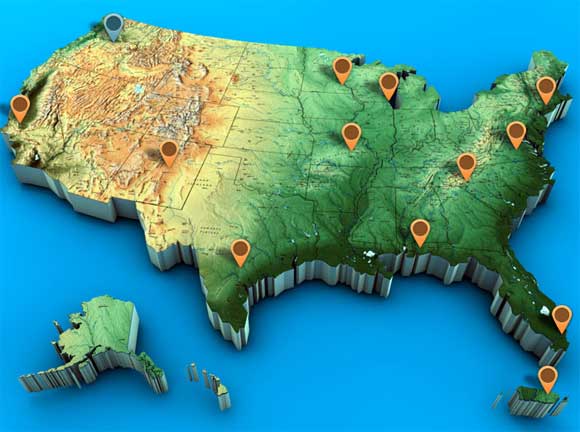
The National Labor Relations Board made public a webpage that describes the rights of employees to act together for their mutual aid and protection, even if they are not in a union.
The page, at www.nlrb.gov/concerted-activity, tells the stories of more than a dozen recent cases involving protected concerted activity, which can be viewed by clicking points on a map. Among the cases: A construction crew fired after refusing to work in the rain near exposed electrical wires; a customer service representative who lost her job after discussing her wages with a coworker; an engineer at a vegetable packing plant fired after reporting safety concerns affecting other employees; a paramedic fired after posting work-related grievances on Facebook; and poultry workers fired after discussing their grievances with a newspaper reporter.
Some cases were quickly settled after charges were filed, while others progressed to a Board decision or to federal appellate courts. They were selected to show a variety of situations, but they have in common a finding at some point in the NLRB process that the activity that the employees undertook was protected under federal labor law.
The right to engage in certain types of concerted activity was written into the original 1935 National Labor Relations Act's Section 7, which states that: "Employees shall have the right to self-organization, to form, join, or assist labor organizations, to bargain collectively through representatives of their own choosing, and to engage in other concerted activities for the purpose of collective bargaining or other mutual aid or protection, and shall also have the right to refrain from any or all such activities."
That right has been upheld in numerous decisions by appellate courts and by the U.S. Supreme Court over the years. Non-union concerted activity accounts for more than 5% of the agency's recent caseload.
"A right only has value when people know it exists," said NLRB Chairman Mark Gaston Pearce. "We think the right to engage in protected concerted activity is one of the best kept secrets of the National Labor Relations Act, and more important than ever in these difficult economic times. Our hope is that other workers will see themselves in the cases we've selected and understand that they do have strength in numbers."
